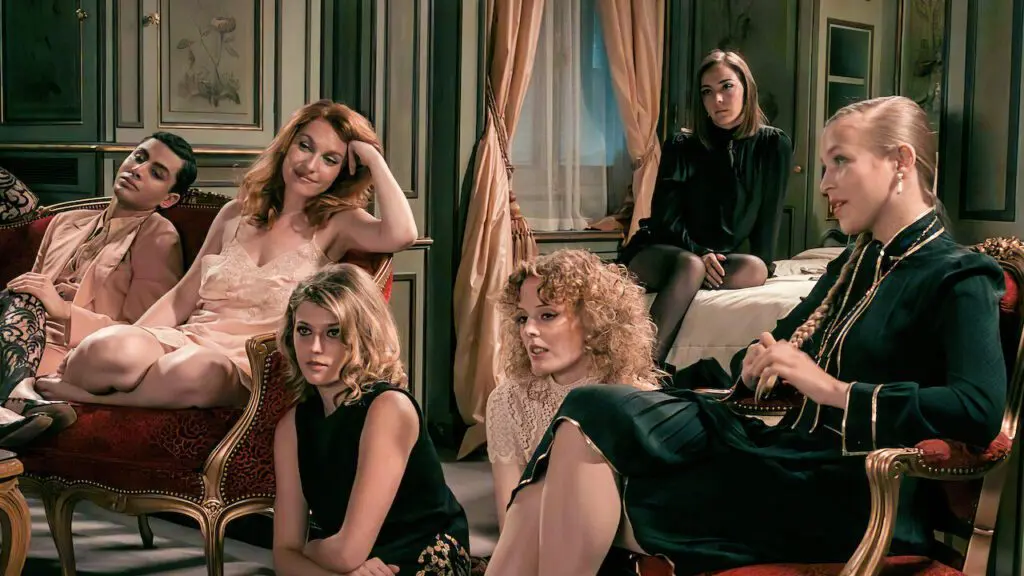Summary
Madame Claude works as a study of a highly contradictory figure, but it falls down badly as a dramatic narrative.
The smartest decision of Sylvie Verheyde’s Madame Claude, a telling of the rise and fall of Fernande Grudet, the owner of an influential brothel during the politically tumultuous Paris of 1968, is to embrace the contradictions of its title character rather than play them down.
Far from a squeaky-clean biography of the woman who basically ran the sex lives of France’s most notable dignitaries and civil servants, this is instead a muddy portrait of a largely self-serving woman who held the fates of many others in her hands and didn’t always know what to do with them.
That’s the smart bit. The problem with Madame Claude is that it’s absolutely interminable as a work of entertainment, stretching scenes of sex and snarky conversation across almost two hours with very little concern for a dramatic through-line. Karole Rocher, who plays the madame, spends most of her time verbosely narrating her circumstances, displaying an attitude that it’s difficult to empathize with as her empire becomes complicated by the high-profile Markovic scandal and the demands of the Intelligence Services.
As the stakes ostensibly rise the film somehow gets less interesting, losing some of its intriguing scene-setting details and shifting focus away from the most interesting character in Garance Marillier’s atypical hooker Sidonie.
Madame Claude works best when it’s depicting the brothel’s power and influence in the politics of France; how deals are made, friendships are struck up, and information about sexual preferences is exchanged.
Likewise, a funny, nothing scene like Grudet declaring that Marlon Brando is five minutes away works as a joke but also a telling reminder of the kind of clients who frequented the brothel in Paris’s swanky 16th arrondissement.
It’s Grudet’s attempts at rationalizing her own flaws where the film’s intentions become difficult to parse; is her contradictory, hypocritical nature highlighted as a critique, or are we supposed to delight in her pithy remarks about her own independence, power, and influence?
I suspect it’s the former. Her rags to riches story might get the audience on her side, but she has embraced high society and retains almost nothing from her provincial background. She’s a mother but treats her daughter with complete disinterest all throughout.
The women who work for her, who are closer to a family than her biological relations, are nonetheless grilled endlessly about their appearance, hygiene, and sexual technique, and are expected to take all manner of physical abuses from the clientele if needs be.
By the time the state is putting Grudet in increasingly risky positions, it is difficult to care what happens to her either way.
And the pacing! In some ways, Madame Claude has the opposite problem but the same outcome as Sky High. The former has a glacial gait and the latter moves like greased lightning, but neither manages to tell a particularly coherent story as a result.
This film is arguably worse in how it cycles through genres – biography, character study, elaborate fiction – as well as disjointed scenes. Some stylish cinematography and the odd cutting line aren’t enough to elevate Madame Claude beyond just a cliff notes version of a remarkable real life.
Read More: Madame Claude Ending Explained




